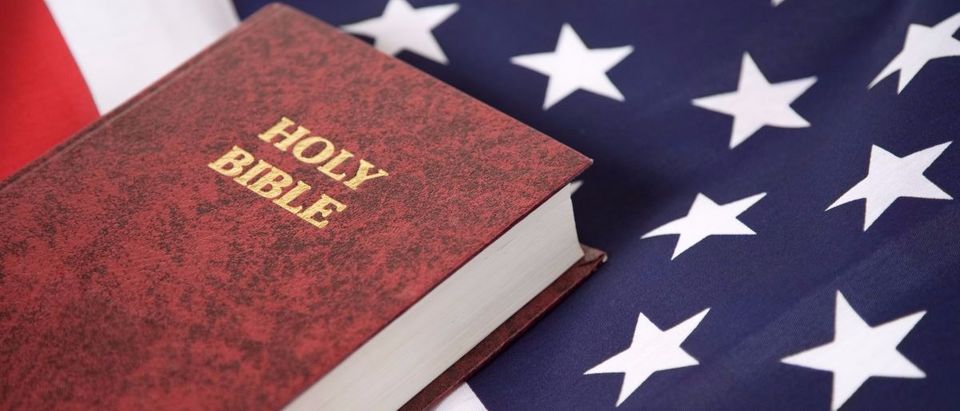The House tax reform bill fulfills a longtime goal of Christian conservatives by eliminating the ban on religious organizations making tax exempt political donations.
The provision will empower churches to participate directly in partisan politics, a measure the Christian right has long advocated for despite criticism from a diverse coalition of religious organizations, who claim the move will obscure the barrier between church and state.
The House tax bill effectively repeals the Johnson Amendment, a provision in the 1954 tax bill added at the direction of then Sen. Lyndon B. Johnson. Johnson advocated for the amendment, which bans political activity by tax exempt charitable groups, in an effort to disempower a pair of conservative nonprofit groups opposing his reelection campaign.
A summary of the House tax bill states that no 501 C-3 charity will lose its tax exempt status “because of engagement in certain political speech, as long as the speech is in the ordinary course of the organization’s business.”
Tony Perkins, president of the conservative Family Research Council, celebrated the bill’s language, arguing that it “puts an end to the IRS’s role of policing the speech of churches, and non-profit organizations,” in a statement released after the House draft emerged. “The IRS has no constitutional basis to monitor and then censor speech that doesn’t meet with the approval of government bureaucrats,” Perkins said.
Should the Johnson Amendment repeal come to fruition, donors will redirect to churches an estimated $1.7 billion in contributions formerly made to campaigns and PACs, according to the nonpartisan congressional Joint Committee on Taxation. Political donors will be incentivized to funnel their contributions to like minded religious groups in order to receive the tax deduction that accompanies charitable giving.
Evangelical groups on the right have cast repeal of the Jones Amendment as a free speech issue. Christian leaders have cited the amendment as a primary factor in their inability to speak out directly in support of political candidates as doing so would imperil the tax exempt status of their organizations. A coalition of evangelicals expressed this concern when they met with then-candidate Donald Trump in January 2016, prompting Trump to pledge repeal of the amendment in subsequent campaign speeches.
Critics of the repeal, many religious groups among them, argue that it would inject religious groups into partisan politics in a counterproductive way. These groups claim the move might jeopardize government funding should a spiteful politician seek retribution against a hostile religious organization.
“It will bring the partisan divide to our doors,” Jatrice Martel Gaiter, the executive vice president of external affairs for Volunteers of America, a ministry and social service provider that relies heavily on government funding, told The New York Times. “If the Senate doesn’t stop this, there will be havoc in the nonprofit sector.”
The Senate tax reform bill does not include repeal of the Jones Amendment, one of a number of inconsistencies between the two House and Senate versions that must be addressed before the bill goes to Trump’s desk.
All content created by the Daily Caller News Foundation, an independent and nonpartisan newswire service, is available without charge to any legitimate news publisher that can provide a large audience. All republished articles must include our logo, our reporter’s byline and their DCNF affiliation. For any questions about our guidelines or partnering with us, please contact licensing@dailycallernewsfoundation.org.


